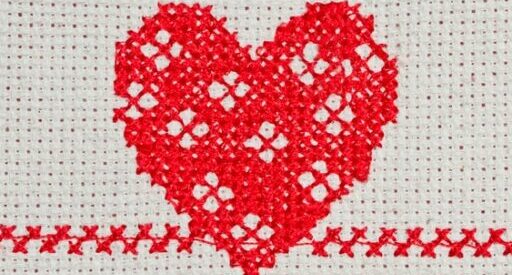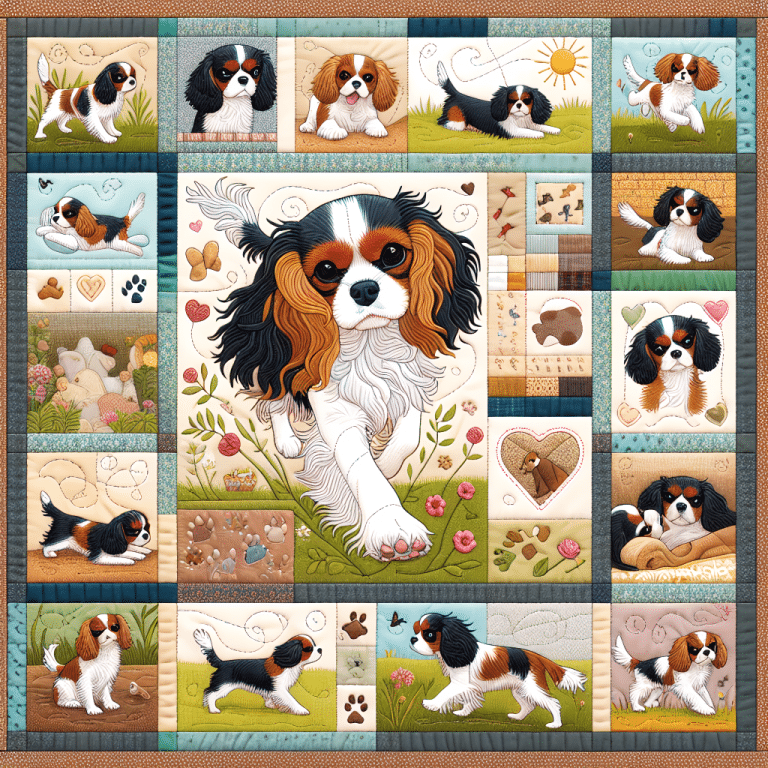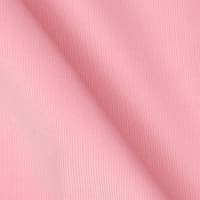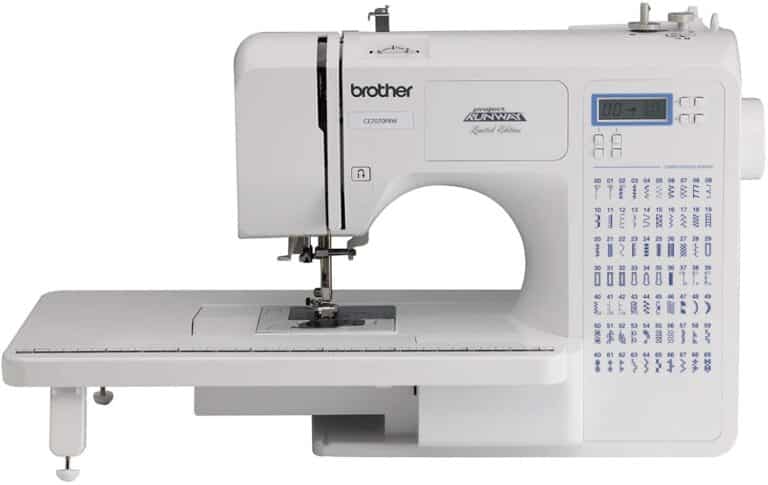5 Best Fabrics for Superhero Capes
| Fabric Type | Key Features | Care Instructions | |
|---|---|---|---|
| 1. | Stretch Velvet | – Medium weight – 80% polyester and 20% Lycra spandex – Available in over seventy-five different colors | Hand wash in cold water with milk soap or dry clean |
| 2. | 58” Faux Dupioni Silk | – Lightweight – Full bodied drape with a matte sheen – Made from 100% polyester | Dry clean only |
| 3. | Double Brushed Solid Fleece | – Very soft, medium weight – Made from 100% polyester – Available in over ten different solid colors | Machine wash on cold, tumble dry on low heat |
| 4. | Wilmington Solids (Cotton) | – Medium weight broadcloth – Made from 100% cotton – Available in twelve different, solid colors | Machine wash with cold water, tumble dry on low heat |
| 5. | Wool Coating | – Medium weight – Blend of 80% wool and 20% polyester – Available in fifty-five different colors, including both printed fabrics and solid colors | Dry clean only |
Table of Contents
Best Fabrics for Superhero Capes
Here are our fabric for superhero cape reviews
1. Stretch Velvet
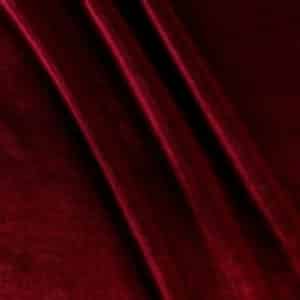
It’s hard to think of a superhero cape without thinking of velvet. This stretch velvet is so much more classy than crushed velvet and won’t look cheap or like a Halloween costume. This velvet has a knit base and a velvet face. It has a luxurious sheen and features 10% four-way stretch for that little bit of extra versatility.
- This fabric is medium weight and is made from 80% polyester and 20% Lycra spandex
- This line of velvet fabric comes in over seventy-five different colors
- Hand wash with in cold water with milk soap or dry clean
2. 58″ Faux Dupioni Silk

Silk could be used to make a shiny, classy, soft, lightweight cape on its own or it could be used to line the inside of a cape. This fabric is actually a faux silk, which makes it much more budget friendly. One of the great benefits of this fabric is that it is available in almost twenty different, vibrant colors. This fabric is slightly textured, but real silk or non-textured faux silks could also work for capes.
- Dry clean only
- This fabric has a full bodied drape with a matte sheen
- This dupioni fabric is very lightweight and is made from 100% polyester
3. Double Brushed Solid Fleece
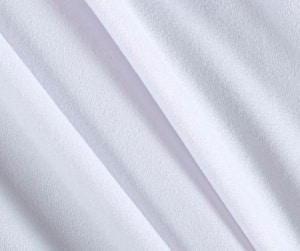
Fleece can be a good choice for superhero capes from small to large and everything in between. Since fleece won’t fray, the cut edges don’t have to be finished. Fleece is a good choice for a no-sew cape or for those that don’t have a ton of time to make a cape. The fabric can be cut to the desired size and it’s ready to go. As an added bonus, this fabric is quite budget friendly.
- This fleece is very soft, is medium weight, and is made from 100% polyester
- Comes in 60” width and is available in over ten different solid colors
- Machine wash on cold, tumble dry on low heat
4. Wilmington Solids
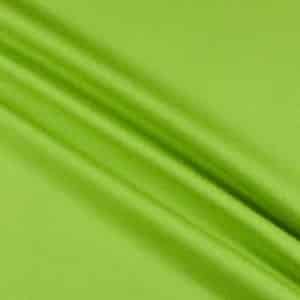
Cotton is a very versatile and durable fabric that can be used for many different projects. Cotton could be used to make a great superhero cape. This fabric is medium weight, so it could likely stand alone, but it could also be lined with another layer of cotton, or even a silk, stain, or polyester fabric to give it that extra thickness and sheen.
- This line of cotton comes in twelve different, solid colors
- Machine wash with cold water, tumble dry on low heat
- This medium weight broadcloth fabric is made from 100% cotton and comes in 44” widths
5. Wool Coating

If a thicker, very durable, warm fabric is required to make a superhero cape, consider wool. Wool might seem like an odd choice, and it won’t be for everyone, but it does have some great properties that make it a consideration. This fabric is a blend of wool and polyester and is versatile enough to be used for all sorts of apparel items.
- This medium weight fabric is a blend of 80% wool and 20% polyester
- Dry clean only
- This line comes in fifty-five different colors, including both printed fabrics and solid colors
Fabric for Superhero Cape Buying Guide
The style, pattern, and size of the cape desired will largely determine the type of fabric that needs to be purchased. Climate and lifestyle might also play a role. Generally, at least a yard to two or even three yards will be needed (double if the cape is lined), plus fabric for any hood or trim that might be required. Sewing a cape can be a good project for beginner sewers, or for advanced sewers as well, depending on the style.
Cost to Make a Cape
The cost of making a superhero cape will vary with the size of the cape, as this determines how much fabric will be needed. Fabric for a cape can be cheaper, depending on the type of material needed, or more expensive, if a high quality fabric is desired. There are often middle of the road fabrics that look great and feel soft, are durable, and can still be purchased in a budget.
Making the Cape
There are a ton of different ways to sew a cape. Some caps can even be made with little to no sewing at all. Capes can be more complicated as well. They can include trims, hoods, or be made with fabrics that are notoriously not beginner friendly to sew with. There are many tutorial videos online that can show you how to sew a cape if you’re not sure where to start. Even harder to make capes sometimes have tutorials, or at least tips and tricks by experienced sewers and even cosplayers, who are used to making costumes, often with tougher to work with materials.
Recommended Reading:
